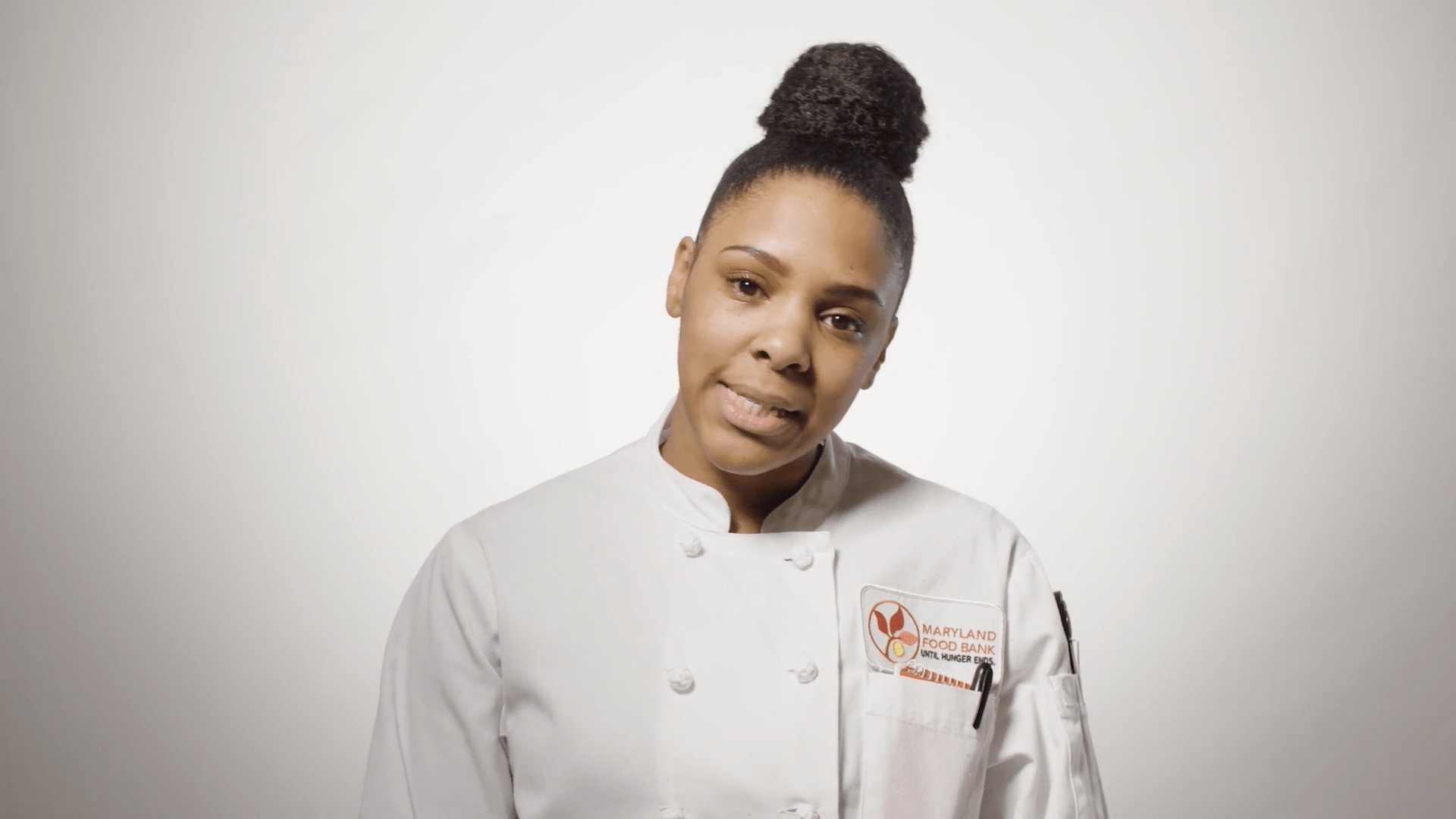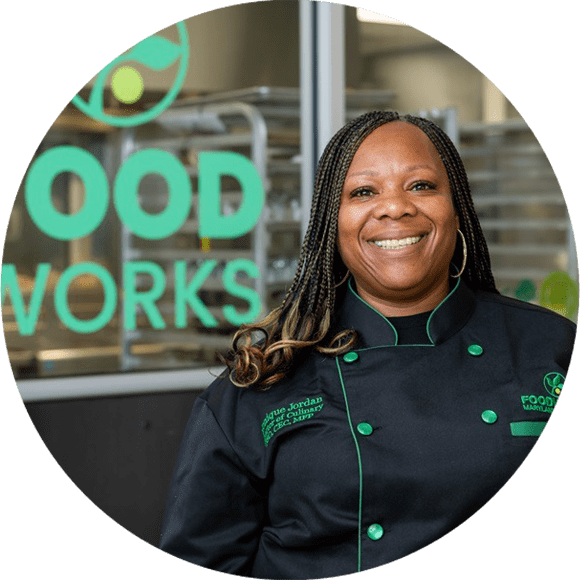FoodWorks is the Maryland Food Bank’s flagship workforce development program, focusing on the culinary arts. Throughout the program, students learn both knife skills and life skills, while working closely with FoodWorks staff to graduate as well-rounded, professional Chefs that can thrive in any culinary setting.
We meet students where they are in life, and change the “recipe for success” based on each students’ individual needs. Our staff can help connect students to vital wraparound services that can eliminate barriers such as lack of transportation, childcare issues, and even provide students with food to take home each week to help make ends meet.
When we help remove the root causes that can block a person’s ability to improve, that person has the ability to focus on the change they want to see in their own lives, and move forward.
The History of FoodWorks
Launched at Maryland Food Bank headquarters, the program training takes place in classrooms and in the Charles T. Bauer Community Kitchen, a state-of-the-art culinary facility opened in 2010.
Over the course of 12 weeks, Maryland Food Bank’s chef trainers guide students through a curriculum that includes fundamental culinary techniques, nutrition, menu planning, and job-seeking skills.
FoodWorks training in Baltimore County combines in-person training featuring curriculum from the Community College of Baltimore County (CCBC) , which includes three levels of Basic Culinary training, each followed by hands-on practice of those techniques and skills.
Seeing the powerful impact FoodWorks has on not only our graduate chefs, but our state as a whole, we opened a second location on the Eastern Shore.
This partnership with Wor-Wic College means more Marylanders can benefit from this time-tested workforce development program.
What Happens in FoodWorks
While you can check out What You’ll Learn for more detailed information on what happens during each trimester of FoodWorks, each graduating student emerges as a Chef, supported by:
- 12-week professional training – Students learn basic cooking techniques, discipline in the workplace, and professionalism.
- ServSafe® certifications – This certificate confirms to prospective employers that the graduates are experts in food safety and handling.
- Job placement assistance – The food bank helps find full-time employment for graduates, who earn well above the current minimum wage.
- A chef’s starter kit – Upon graduation each student receives a professional-grade knife kit to launch into a new career.
The FoodWorks Team
FoodWorks staff are far from just culinary trainers—many have been where you are and have chosen to stay with the Maryland Food Bank to help train and inspire the next generation of professional chefs!
Find Out More About FoodWorks
Students come to FoodWorks from a variety of backgrounds, but all have one goal in mind—to graduate as a professional chef with opportunity to enjoy a good-paying career in the culinary industry.



